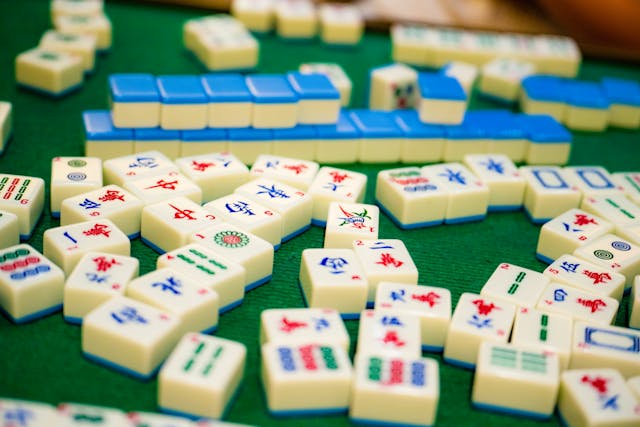In recent years, mahjong has seen a resurgence in popularity, particularly among seniors. This traditional tile-based game, which originated in China, has found a new audience in older adults across the globe. Its growing appeal among seniors can be attributed to several factors, including its cognitive benefits, social aspects, and the sense of community it fosters.
Mahjong is starting to rival pickleball.
Cognitive Benefits
One of the main reasons more seniors are playing mahjong is its positive impact on cognitive health. Mahjong is a game of strategy, memory, and skill, requiring players to focus, plan, and make quick decisions. Engaging in such mentally stimulating activities is known to help maintain and improve cognitive function, which is particularly important for seniors who want to keep their minds sharp and ward off conditions like dementia and Alzheimer’s disease.
Social Interaction
Mahjong is a highly social game, traditionally played with four players sitting around a table. This setup naturally encourages conversation and interaction, making it an excellent way for seniors to connect with others. In a time when loneliness and social isolation are significant concerns for older adults, mahjong offers a fun and engaging way to maintain social connections. Regularly playing the game allows seniors to build friendships, reduce feelings of isolation, and enjoy a shared activity that brings people together.
Community and Tradition
For many seniors, especially those of East Asian descent, mahjong carries cultural significance and nostalgia. Playing mahjong can be a way to reconnect with their heritage and share cultural traditions with younger generations. In communities where mahjong has long been a popular pastime, the game often serves as a bridge between generations, helping to preserve cultural practices while fostering intergenerational bonds.
Adaptability and Accessibility
Mahjong is also adaptable and accessible, making it appealing to seniors. The game can be played at different skill levels, ensuring that beginners and experienced players alike can enjoy it. Additionally, online platforms and digital versions of the game have made it easier for seniors to play mahjong, even if they can’t gather in person. These online options have become particularly popular during the COVID-19 pandemic, allowing seniors to continue playing and staying connected from the safety of their homes.
Conclusion
The growing popularity of mahjong among seniors highlights the game’s enduring appeal and its many benefits. From enhancing cognitive function to fostering social connections and community, mahjong offers seniors a meaningful and enjoyable way to stay active, engaged, and connected. Whether played in person or online, mahjong is a game that not only entertains but also enriches the lives of older adults.








